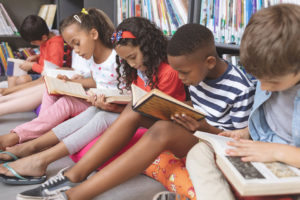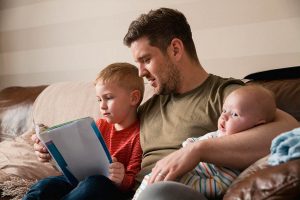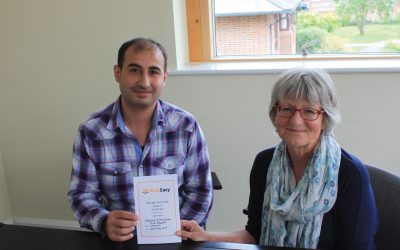We often hear educators, politicians and others talk about literacy. Literacy became important when, after the revised National Curriculum was introduced in 2000, it became apparent that many children were progressing to secondary school without the basic skills they needed to learn successfully.
Even more disturbing was the fact that there were around seven million adults unable to read, write and communicate successfully. The cost to the country was thought to be around £2.5 billion.


Literacy programmes were introduced into schools and colleges to help improve the situation
Adults were being cut off from opportunities to work, helping their families learn and were disadvantaged in many ways.
Literacy programmes were introduced into schools and colleges to help improve the situation. However, the literacy hour or lesson did not always encourage children to enjoy English and the skills were not always transferred to learning in other subjects.
Much has improved over the years thanks to good teaching in our schools and colleges.
There is still room for progress, especially in schools, which are experiencing difficulties because of their local situation, problems attracting staff and lack of parental support.
This is where Rotarians can help to ensure that such schools are well supported and given the resources that they need to help their pupils’ literacy skills develop.
A wise man once said: “Education is the most powerful weapon which you can use to change the world.” He was Nelson Mandela.
It is thought that one in 11 children from disadvantaged backgrounds are unlikely to own a book or be read to. Currently adults in their mid-fifties perform better than many 16 to 24-year-olds. This is a concern as we need a skilled workforce to progress our society.
Children who enjoy reading aged 10-years-old can have a higher reading age than their peers, a longer life expectancy and better mental health.
Education is the most powerful weapon which you can use to change the world.”
The current pandemic and time spent out of school will have made the gap between those who can read well and have access to IT to do their lessons, much wider when they return to school.
Those who suffered through lockdowns mentally, socially and who are grieving, will need much more support to ensure their life chances are not blighted. This is a great responsibility for us as a society and as Rotarians who support our communities.
How can we as Rotarians support children, young people and adults to develop their literacy skills? What projects can we instigate or support whilst slowly getting back to our meetings and assessing the needs of schools and individuals?
One way is to support libraries. Schools have been starved of funds to develop their libraries over the years. They have lost their librarians and their stock of books has probably not grown greatly either.


Stories that children read or have read to them can make a real difference to their future
The types of books needed will include those that help pupils improve their well-being as well as non-fiction and fiction.
There are the straight forward things to do such as offering funds for the purchasing of books, going into schools and running book clubs, hearing children read, talking to them about their hopes and dreams.
For adults, helping with writing skills for CVs and other work-related objectives are important. In other words, befriending institutions in your area and supporting their literacy projects where you can.
I expect some will remember the excitement of going to the library or the mobile library. Libraries are losing funding and mobile libraries are few and far between.
What about Rotarians in their districts looking into developing mobile libraries that can visit local schools and loan books to pupils?
A project that could involve the community refurbishing a coach or single decker bus no longer needed by a company. It might just be the vehicle to carry hope to young readers.


Shelagh Moore, author and Rotarian
Stories, non-fiction books that children read or have read to them can make a real difference to their futures. Grants would surely be available to such a project; it could attract new members who would see Rotary in action and most importantly support in a positive way the literacy needs of our children and young people.
Starting early helps. Babies watch and learn from an early age. You can never show them a picture book too soon. They will pat the picture, enjoy sitting on your knee listening to you talking about the pictures. They will point out objects, turn pages, and as they get older begin to understand what they are looking at.
I remember a walk in the country with our son riding on his daddy’s shoulders suddenly beginning to make baa-ing sounds. We had read him the Ladybird farm animals book. He had seen some sheep in a field and made a connection!
A friend who read sat on the stairs with a toddler on a Home-Start visit, arrived the next week to find the little one sitting on the stairs waiting for her story. Encouraging parents to read with their children is a wonderful thing to do for any family.
As a writer of education resources and children’s stories, I often put a ‘Did you Know?’ section in my children’s stories as in ‘The Plastic Warrior’, a story that shows an individual can make a difference!
Maybe this story might inspire a child to help litter pick on a beach, or in a park. Who knows?
© Shelagh Moore


























































